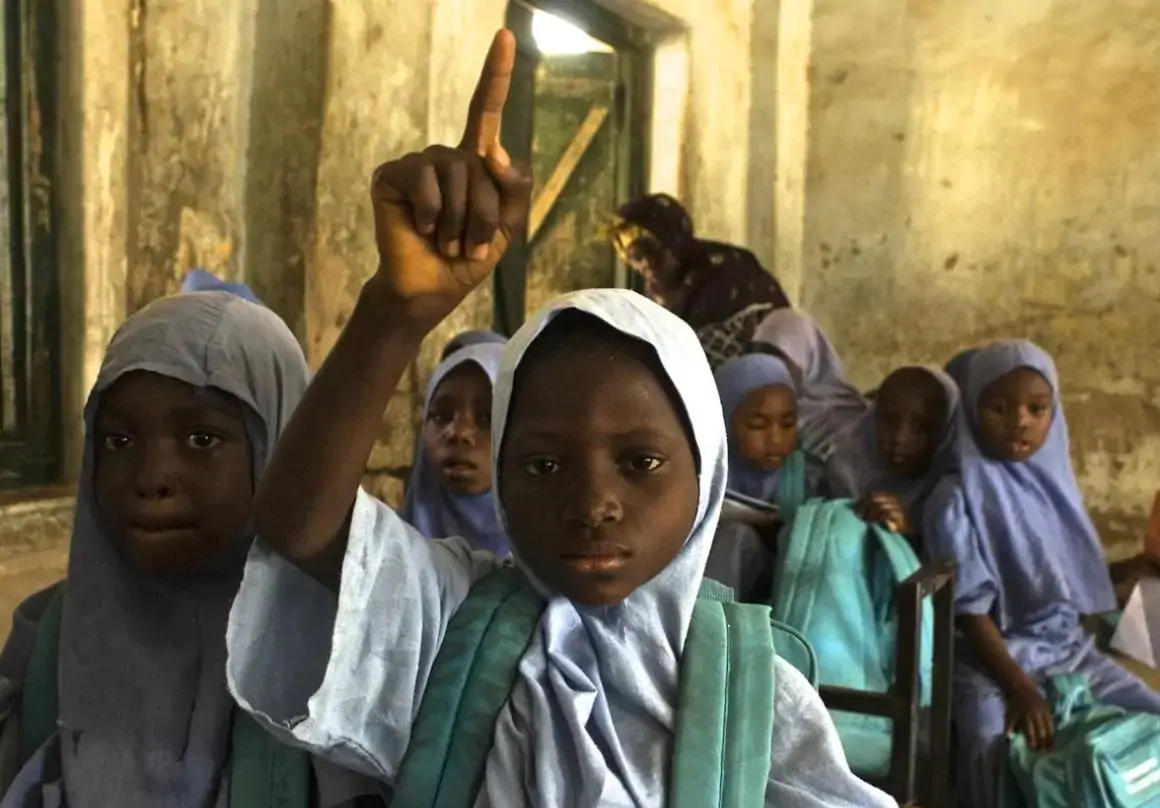Towards guaranteeing the girl child’s future
Education is a fundamental human right that all Nigerian children should be given, without bias to gender. However, the importance of education in the life of the girl child can never be over-emphasised. Educating the girl child produces mothers who will in turn raise upright children. They are a formidable pillar of moral and financial […]

File Photo: girl-child education
Education is a fundamental human right that all Nigerian children should be given, without bias to gender. However, the importance of education in the life of the girl child can never be over-emphasised.
Educating the girl child produces mothers who will in turn raise upright children. They are a formidable pillar of moral and financial support to their families.
Studies have shown that the girl child education also prepares her to face life’s harsh realities, while also grooming her to become a good, responsible and dutiful wife, who will not shirk her motherhood responsibilities.
Better educated and empowered women help to drive societal reformation, and also contribute to the development of any nation.
- You’ll get full benefit from Kolmani oil, Atiku tells Bauchi voters
- Banks should do better to ease Nigerians suffering – Ombudsman
Despite several national and international legal instruments such as the Strategy for the Acceleration of Girls Education Programme (2003), the Child Rights Act (2003) and the United Nations Convention on the Rights of the Child (UNCRC), many Nigerian girls still face challenges preventing them from access to education.
Among the key factors affecting the girl child education, here in the northern part of the country, are poverty, illiteracy, teenage and underage marriage.
According to Malala Fund, an education blog, Nigeria accounts for 45% of all out-of-school children in West Africa, with over 10 million out-of-school children. “Girls account for 60% of Nigeria’s 10 million out-of-school children. In Nigeria, 30% of girls aged 9-12 have never been to school at all.
The exclusion of girls from education, more than anything, denies them the opportunity to develop their potential and to play a crucial role in their families, country and the world at large.
Since the girl child education has been identified as the backbone of the advanced societies of the world, developing countries like ours must accord it priority attention, knowing that its impacts on any society are numerous.
Hence, the government, corporate organisations and Nigerian philanthropists must deem it necessary to support the girl-child education through scholarship awards, and provision of free text books, and school uniforms.
No sacrifice is too small to make for the Nigerian girl child, if her promising future must be guaranteed.
Fatima Ali Busuguma is a corps member with PR Nigeria, Abuja
